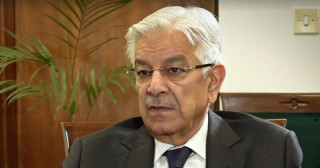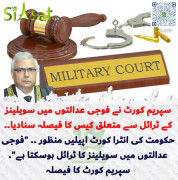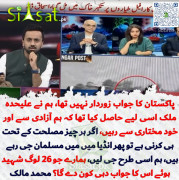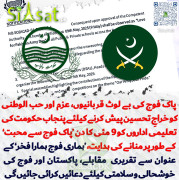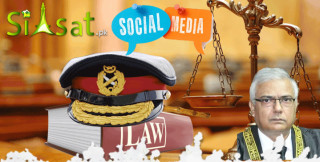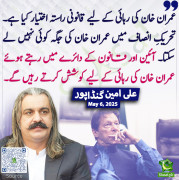M Ali Khan
Minister (2k+ posts)
Everywhere in chains
Why Islamic debates over slavery matter to everyone
Aug 27th 2019
FOR ANY system of belief that vests ultimate authority in the past, slavery is a big moral problem. That goes for all three of the monotheistic faiths, and even for civil creeds such as traditional American patriotism, which is now wrestling hard with the fact that human equality’s most eloquent advocates, the republic’s founders, were also slave-owners.
For several reasons, this dilemma is an acute one for Muslims, as emerges in a scholarly but digestible new book, “Slavery and Islam”, by Jonathan Brown, a professor at Georgetown University and himself a Muslim convert. He focuses on both theology and history right up to the mid-19th century—when slavery became a bone of contention between European imperial powers, full of new-found abolitionist zeal, and traditional Muslim authorities across the Middle East and beyond.
Like everything else about the Muslim encounter with European colonialism, this is a painful memory, and many Muslims insist that the European stance was patronising and hypocritical.
In certain cases, the Muslim sheikhs’ response to colonial pressure involved a tart recourse to Islam’s holy texts, in which the existence of slavery is taken as an inexorable feature of human society. If God tolerated this system, the traditional Islamic scholars said, it was surely not for any human authority to abolish it.
Others told their Western critics that slavery, as practised under Islam, was a far more humane phenomenon than the bondage endured by say, American plantation workers; therefore the Westerners had no moral standing.
Although this lies outside the scope of Mr Brown’s book, present-day discussions about slavery are further complicated by the much broader sense in which the word has come to be used.
The term “modern slavery” now encompasses human trafficking, especially for sexual exploitation, as well as the bonded labour imposed for debts, for example in India. The term also covers forced labour mandated by harsh states like North Korea. According to the United Nations, at least 40m people endure modern slavery of one form or another.
However traditional slavery, in which humans are treated as chattels, and bequeath their status to their children, does still exist, even though all countries have abolished it. The places where the social reality of servitude lingers on are mostly in a swathe across North Africa: for example Mauritania, Niger, the Central African Republic and Sudan.
In Mauritania, slavery was formally abolished by the French colonists in 1905, and by the independent republic in 1981, but last year the country was rebuked by the African Union for failing to stamp it out.
Nasser Weddady, a Mauritanian-American activist who encourages civil-society movements across North Africa, says the subject is so emotional in his home region that it is hard to have a calm discussion. People either exaggerate slavery’s persistence or deny it ever existed.
Many younger Arab Muslims have accepted the argument that Islam never endorsed slavery, and become upset when presented with evidence to the contrary, he has discovered.
That makes it all the more important for scholars to examine the evidence through an objective historical lens, as Mr Brown sets out to do. In truth, he writes, there can be no doubt that Islam’s founding texts accept and assume the existence of slavery. They also strongly encourage masters to free their slaves, as a way of atoning for sin or simply as a disinterested act of piety.
But keeping slaves is not condemned: it is considered to be a logical consequence of war, in which the men, women and children of the losing side are taken captive. It also seems clear from the texts that male householders are allowed to take female captives as concubines.
On the other hand, it is also clear that in Islam, man’s natural condition is freedom; when an abandoned child is discovered, it is assumed to be free. But where a child’s parentage is known, the status of servitude passes down the generations. Unless they are explicitly freed, the children of slaves can expect to spend their lives in bondage.
Despite all that, the vast majority of today’s Muslim thinkers share the modern view that slavery is an absolute evil, whose abolition is to be welcomed. As Mr Brown carefully explains, they use many different arguments to reconcile this position with the older texts.
Some stress that freedom for all was always the divine purpose, and that God only allowed slavery in the early days of Islam as a concession to the realities of the age. Others insist that God never really approved of slavery at all, and that regulating an evil phenomenon is not the same as endorsing it.
Others still assert that Islam can evolve. They stress the entitlement of Muslim scholars, after due deliberation, to make fresh moral pronouncements through a process of ijma or consensus. Some scholars emphasise the right of legitimate rulers to make liberating reforms. In other words, the adage that “man can never abolish what God allowed” has largely been dropped.
To people outside the world of Islam, or indeed outside the world of revealed religion, it may seem unimportant which line of exegesis is used to reconcile modern thinking about slavery with Islam’s holy writ. The main thing, surely, is the conclusion: that slavery is now and always will be unacceptable.
But Mr Brown convincingly shows that theology matters, if only because any argument that can be constructed theologically can also be deconstructed. The terrorist movement known as Daesh (or Islamic State) regards the legitimacy of slavery under Islam as axiomatic, and questions the right of anyone who thinks otherwise to be considered Muslim.
Appallingly, it claimed scriptural authority for the right of its fighters to rape female captives of an alien faith, such as the Yazidis.
The ISIS “caliphate” may have been destroyed, but the group’s ideas also need to be opposed theologically.
Non-Muslims are unlikely to make much contribution to the minutiae of debate about what this or that passage in the Koran really means, but they can at least offer encouragement from the sidelines whenever the matter is being addressed in good faith.
Correction: An earlier version of this article said that under Islamic law, the child of a free father and slave mother is considered a slave. In fact, such a child is deemed free.

Why Islamic debates over slavery matter to everyone
Aug 27th 2019
FOR ANY system of belief that vests ultimate authority in the past, slavery is a big moral problem. That goes for all three of the monotheistic faiths, and even for civil creeds such as traditional American patriotism, which is now wrestling hard with the fact that human equality’s most eloquent advocates, the republic’s founders, were also slave-owners.
For several reasons, this dilemma is an acute one for Muslims, as emerges in a scholarly but digestible new book, “Slavery and Islam”, by Jonathan Brown, a professor at Georgetown University and himself a Muslim convert. He focuses on both theology and history right up to the mid-19th century—when slavery became a bone of contention between European imperial powers, full of new-found abolitionist zeal, and traditional Muslim authorities across the Middle East and beyond.
Like everything else about the Muslim encounter with European colonialism, this is a painful memory, and many Muslims insist that the European stance was patronising and hypocritical.
In certain cases, the Muslim sheikhs’ response to colonial pressure involved a tart recourse to Islam’s holy texts, in which the existence of slavery is taken as an inexorable feature of human society. If God tolerated this system, the traditional Islamic scholars said, it was surely not for any human authority to abolish it.
Others told their Western critics that slavery, as practised under Islam, was a far more humane phenomenon than the bondage endured by say, American plantation workers; therefore the Westerners had no moral standing.
Although this lies outside the scope of Mr Brown’s book, present-day discussions about slavery are further complicated by the much broader sense in which the word has come to be used.
The term “modern slavery” now encompasses human trafficking, especially for sexual exploitation, as well as the bonded labour imposed for debts, for example in India. The term also covers forced labour mandated by harsh states like North Korea. According to the United Nations, at least 40m people endure modern slavery of one form or another.
However traditional slavery, in which humans are treated as chattels, and bequeath their status to their children, does still exist, even though all countries have abolished it. The places where the social reality of servitude lingers on are mostly in a swathe across North Africa: for example Mauritania, Niger, the Central African Republic and Sudan.
In Mauritania, slavery was formally abolished by the French colonists in 1905, and by the independent republic in 1981, but last year the country was rebuked by the African Union for failing to stamp it out.
Nasser Weddady, a Mauritanian-American activist who encourages civil-society movements across North Africa, says the subject is so emotional in his home region that it is hard to have a calm discussion. People either exaggerate slavery’s persistence or deny it ever existed.
Many younger Arab Muslims have accepted the argument that Islam never endorsed slavery, and become upset when presented with evidence to the contrary, he has discovered.
That makes it all the more important for scholars to examine the evidence through an objective historical lens, as Mr Brown sets out to do. In truth, he writes, there can be no doubt that Islam’s founding texts accept and assume the existence of slavery. They also strongly encourage masters to free their slaves, as a way of atoning for sin or simply as a disinterested act of piety.
But keeping slaves is not condemned: it is considered to be a logical consequence of war, in which the men, women and children of the losing side are taken captive. It also seems clear from the texts that male householders are allowed to take female captives as concubines.
On the other hand, it is also clear that in Islam, man’s natural condition is freedom; when an abandoned child is discovered, it is assumed to be free. But where a child’s parentage is known, the status of servitude passes down the generations. Unless they are explicitly freed, the children of slaves can expect to spend their lives in bondage.
Despite all that, the vast majority of today’s Muslim thinkers share the modern view that slavery is an absolute evil, whose abolition is to be welcomed. As Mr Brown carefully explains, they use many different arguments to reconcile this position with the older texts.
Some stress that freedom for all was always the divine purpose, and that God only allowed slavery in the early days of Islam as a concession to the realities of the age. Others insist that God never really approved of slavery at all, and that regulating an evil phenomenon is not the same as endorsing it.
Others still assert that Islam can evolve. They stress the entitlement of Muslim scholars, after due deliberation, to make fresh moral pronouncements through a process of ijma or consensus. Some scholars emphasise the right of legitimate rulers to make liberating reforms. In other words, the adage that “man can never abolish what God allowed” has largely been dropped.
To people outside the world of Islam, or indeed outside the world of revealed religion, it may seem unimportant which line of exegesis is used to reconcile modern thinking about slavery with Islam’s holy writ. The main thing, surely, is the conclusion: that slavery is now and always will be unacceptable.
But Mr Brown convincingly shows that theology matters, if only because any argument that can be constructed theologically can also be deconstructed. The terrorist movement known as Daesh (or Islamic State) regards the legitimacy of slavery under Islam as axiomatic, and questions the right of anyone who thinks otherwise to be considered Muslim.
Appallingly, it claimed scriptural authority for the right of its fighters to rape female captives of an alien faith, such as the Yazidis.
The ISIS “caliphate” may have been destroyed, but the group’s ideas also need to be opposed theologically.
Non-Muslims are unlikely to make much contribution to the minutiae of debate about what this or that passage in the Koran really means, but they can at least offer encouragement from the sidelines whenever the matter is being addressed in good faith.
Correction: An earlier version of this article said that under Islamic law, the child of a free father and slave mother is considered a slave. In fact, such a child is deemed free.

Last edited:


